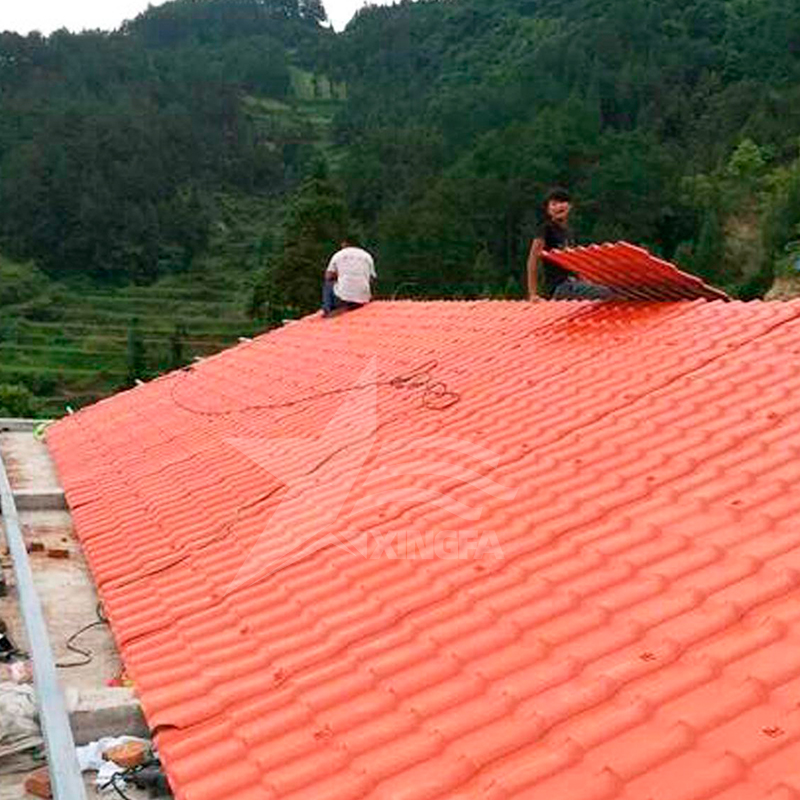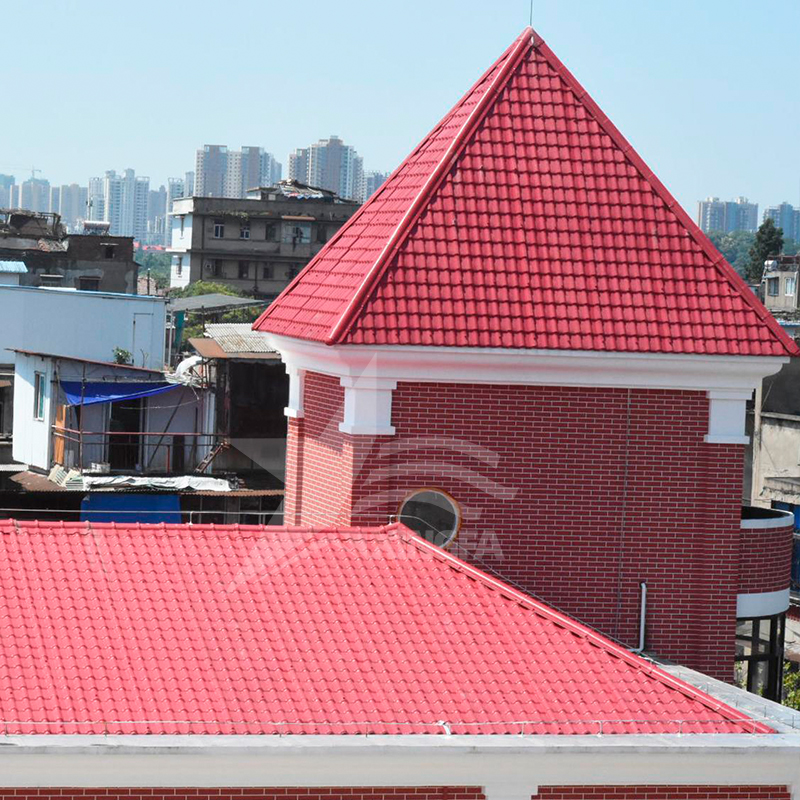Resin tiles are widely used in the construction industry as a high-quality roofing material due to their density and excellent waterproof performance. Synthetic resin tiles have good waterproof characteristics, as they do not absorb or leak water. When installed with a waterproof layer, they can meet the third-level waterproof requirements for roofs. For buildings with higher demands, such as villa sloped roofs or school sloped roofs, an additional waterproof layer can be added beneath the resin tiles to enhance the waterproofing level.

So, how should we waterproof a resin tile sloped roof? Generally, the common practice for second-level waterproofing of resin tile sloped roofs includes: structural roof → cement mortar leveling layer → waterproof layer → insulation layer → leveling layer or protective layer → tile hanging. For higher waterproofing requirements, a waterproof mortar layer can be added above the cement mortar leveling layer, and a waterproof layer can be added between the insulation layer and leveling layer or between the leveling layer and tile hanging. Additionally, using 35mm thick fine stone concrete with dual-directional steel reinforcement in the leveling layer can improve the overall waterproof performance of the roof.

When using wooden boards as the base leveling layer, a layer of rolled material should be laid on the wooden base layer, and the rolled material should be nailed to the wooden base layer using parallel laths with a recommended overlap width of 10cm and a spacing of 500mm. For waterproofing layers in valleys and eaves, it is recommended to use 1.2mm thick synthetic polymer waterproofing rolls or 3mm thick polymer-modified asphalt waterproofing rolls.
After laying the waterproof layer, the insulation layer and resin tiles can be installed to complete the waterproofing, insulation, and tile covering of the entire roof.
Furthermore, there are several key points to pay special attention to during the waterproofing construction of resin tile sloped roofs. Firstly, select waterproof materials that meet the requirements to ensure their quality and performance comply with standards. Secondly, meticulous construction processes are essential, including thorough base treatment, joint treatment, and detailed structural work. Finally, after completion, conduct a water retention test to check for any leakage issues.

The waterproofing project for resin tile sloped roofs is crucial for protecting the integrity and longevity of the building structure. By employing scientific construction methods and selecting high-quality waterproofing materials, we can ensure that resin tile sloped roofs exhibit excellent waterproof performance under various environmental conditions, providing reliable protection for buildings.
